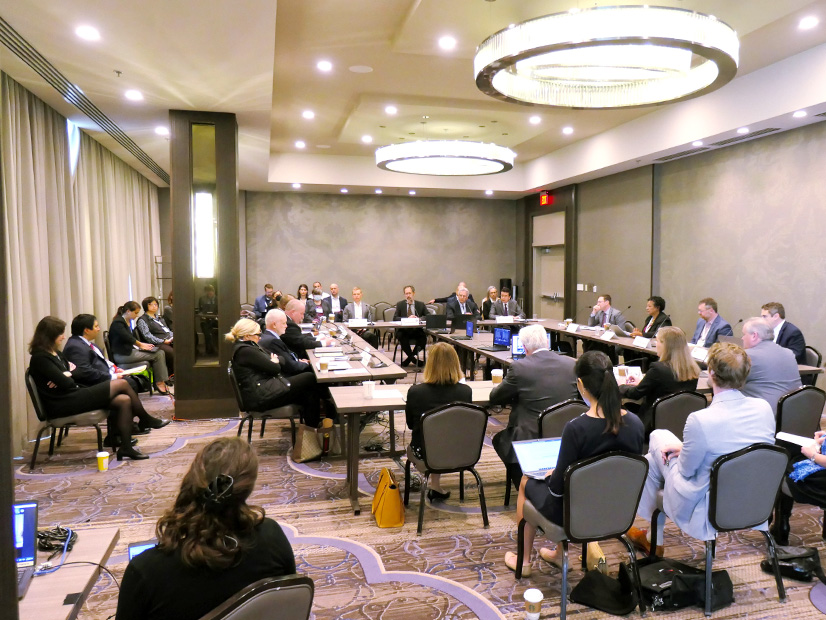
Nearing completion of its long-awaited transmission planning rulemaking, FERC announced March 21 it’s forming a new working group with state regulators to continue the dialogue it began in 2021.
In its order, the commission created the Federal and State Current Issues Collaborative, which will provide a venue for discussions on issues including electric reliability and resource adequacy; natural gas-electric coordination; wholesale and retail markets; new technologies and innovations; and infrastructure (AD21-15, AD24-7).
FERC said the new group will be like the Joint Federal-State Task Force on Electric Transmission, which has held eight meetings since late 2021, the most recent last month. (See Utility Regulators Repeat Concerns About Tx Siting Oversight.)
“Given the success of this collaboration and the array of additional cross-jurisdictional issues relevant to FERC and state utility commissions, we seek to continue a formal collaboration to explore electricity sector issues where there are relevant jurisdictional nexuses or regulatory gaps,” the order said.
The task force discussed issues including regional and interregional transmission planning; siting; cost allocation; generator interconnections; physical security; and grid-enhancing technologies — several of which are likely to be addressed in the commission’s transmission planning and cost allocation rulemaking (RM21-17). (See FERC Watchers Weigh in as Transmission Rule Approaches Finish Line.)
“Yes, we have more work to do on transmission, but we are landing the plane,” FERC Chair Willie Phillips said in a press conference after the commission’s monthly open meeting. “And soon, we’ll need to turn to other matters and issues that I think we can get helpful and valuable feedback on from our state colleagues.”
Like the task force — which was due to expire in November — the new group will run for three years unless extended and will include the FERC commissioners and 10 state regulators nominated by the National Association of Regulatory Utility Commissioners (NARUC).
The order requested that NARUC nominate two state representatives from each of NARUC’s five regions.
“All state commissions may suggest agenda topics for public meetings of the collaborative and may also submit comments before and after on the topics being discussed at such meetings,” FERC said. “In addition, the collaborative may consider convening regional meetings with opportunity for participation by all state commissions in the region.”
The first meeting of the collaborative is expected in fall 2024.
Phillips said the task force “addressed almost every issue that I can imagine under the transmission reform regime,” and that the commission included states’ feedback on Order 2023, which revised the pro forma generator interconnection rules to clear queue backlogs (RM22-14). (See FERC Updates Interconnection Queue Process with Order 2023.)
Now, he said, it’s time for the commission and states to “pivot” to reliability concerns.
“We heard today from Commissioner [Mark] Christie: there is a concern about reliability [and] resource adequacy. That’s also a priority, and I want to hear from our state colleagues on those issues as well. Because … no commission has taken more action on reliability than this one. Every month since I’ve taken over as chairman, we’ve taken a major action on reliability.”
NARUC President Julie Fedorchak, a North Dakota regulator, said the states are eager to continue discussions with FERC. “The role of state utility commissioners is increasingly more challenging and consequential to the quality of life, safety and economic health of this nation,” she said. “Ensuring the reliability of the grid as the energy sector evolves at a rapid pace is crucial.”
North Carolina Commissioner Kim Duffley, who represented the states as the co-chair of the transmission task force, said the group “allowed for meaningful dialogue and assisted in providing a clearer understanding of regional differences.”
“The states look forward to seeing the beneficial results of our conversations and working with our federal partners on other significant federal-state issues,” she added.
Michael Brooks contributed to this article.

